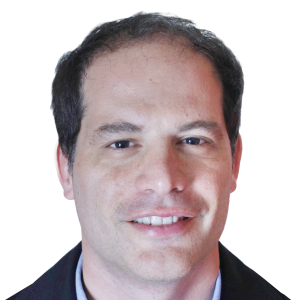Roula Khalaf, Editor of the FT, selects her favourite stories in this weekly newsletter.
In Athens two years ago, finishing a routine 100m race, Asafa Powell looked up at the scoreboard to check his time. “I was very surprised,” he reminisces in his Jamaican brogue. “When I crossed the finishing line and I saw 9.77 [seconds], I was waiting to see if the clock was going to change. And it didn’t.” Powell had just become the world’s fastest man.
Last month in Italy, he sharpened his record to 9.74 seconds. No human has ever run from a lion or starting gun faster than the Jamaican. Yet he seems all wrong for the part: being the world’s fastest man is something primal; the incumbent should be an alpha male, not this quiet, traumatised 24-year-old. Powell seems to have become an athlete without meaning to, yet he could rule next year’s Olympics in Beijing.
Jamaican towns often have quaint English names that belie the island’s contemporary violence, and Powell grew up the son of two reverends in Linstead. All was still happy then. “There was six boys and my mother and my father,” he tells me over the phone from Jamaica. “Growing up around all those guys was so much fun. My mother and father were always taking me to church. All of us would look out for each other.”
An early indication of greatness came at high school: Powell wrote in the yearbook that he wanted to be the world’s fastest man. “I only did that as a joke,” he corrects. “I wasn’t really looking forward to being a professional athlete. I was more interested in football and engineering and art and stuff like that. When I wrote that, I didn’t know what I was doing. The high school championship was just finished, and I won quite easily, so I got excited.
“I started sprinting, and actually my coach was the one who told me, ‘You can be good at this.’ I thought maybe he’s just trying to make me feel good about myself.” Powell (right) himself favoured football. “I called myself ‘Ronaldo’. That would be my dream.”
Rejecting scholarships
to American universities,
he studied in Jamaica. Why? “There are so many things to
do in the US, like making
fast money, selling drugs. And all that food up there – getting fat.” Furthermore, Powell didn’t want to be another overworked collegiate sprinter racing in too many disciplines.
Just as he was getting good, in 2002 his brother Michael was murdered in a New York taxi. “When my first brother died,” Powell says evenly, “I wanted to give up. I had the national trials coming up, and it didn’t make any sense. My family motivated me to go. They said it was what my brother would have wanted. The next year, when my other brother died, it hit me.”
Vaughn Powell had collapsed while playing football in Georgia. Powell says: “I wondered if any more of my brothers are going to die. Then I started to work harder for my family, to put a smile on people’s faces.” But could running do that? “It can, but maybe not at the moment. After winning a couple of races, I wasn’t very, very happy.”
Powell has never won gold at an Olympics or world championship. His critics blame nerves, something that he denies.
But nobody doubts Powell’s gift – particularly as he ran his time of 9.74 while slowing down before the finish. “There were two rounds at that track meet,” the athlete explains. “I was running the semi-final. My coach told me to run hard, but not too hard. When I got to 80m, I remembered he had said that. It amazed me how fast I could go. I just want to go faster and faster, and make people see that a human being can run that fast.”
Jamaica exports pace: the sprinters Linford Christie, Donovan Bailey and the disgraced Ben Johnson were all born on the island. Powell’s brother Donovan ran in the 1999 world championship, while the great Bahamian sprinter Derrick Atkins is Powell’s second cousin. But Jamaica embraces Powell. “Everyone wants to know who is this guy, who breaks the world record, and he’s Jamaican. Sometimes I even stay in because people get so excited when they see me. I get very annoyed at it sometimes. I’m trying to be the same person I was before. It’s hard to do. Everyone in Jamaica thinks I’m rich. If I go downtown, or in the ghetto, people want money.”
In fact, great wealth can only come from starring in Beijing. “That’s when
I have to peak,” he admits. So how
does he assess his rival, the American Tyson Gay? “I’m a very tall and powerful sprinter. I’m a lot more explosive than him. Being taller is a
big advantage. I make long strides.”
So he has the advantage? “Yes, I would give myself that edge.” Does he know Gay personally? “Not really. Seeing
him, he seems a very nice person. He appears humble.”
“Humble”, pronounced “’umble”, is Powell’s favourite word. Often he applies it to himself: “Everyone really admire me. They come to me and say I’m a good role model for their kids. It’s the way I was brought up, ’umble.”
How does he want to be remembered? “As the greatest athlete ever. Maybe one of the greatest athletes ever who has never taken drugs.” Sometimes it’s hard to stay ’umble.
More Simon Kuper

Comments